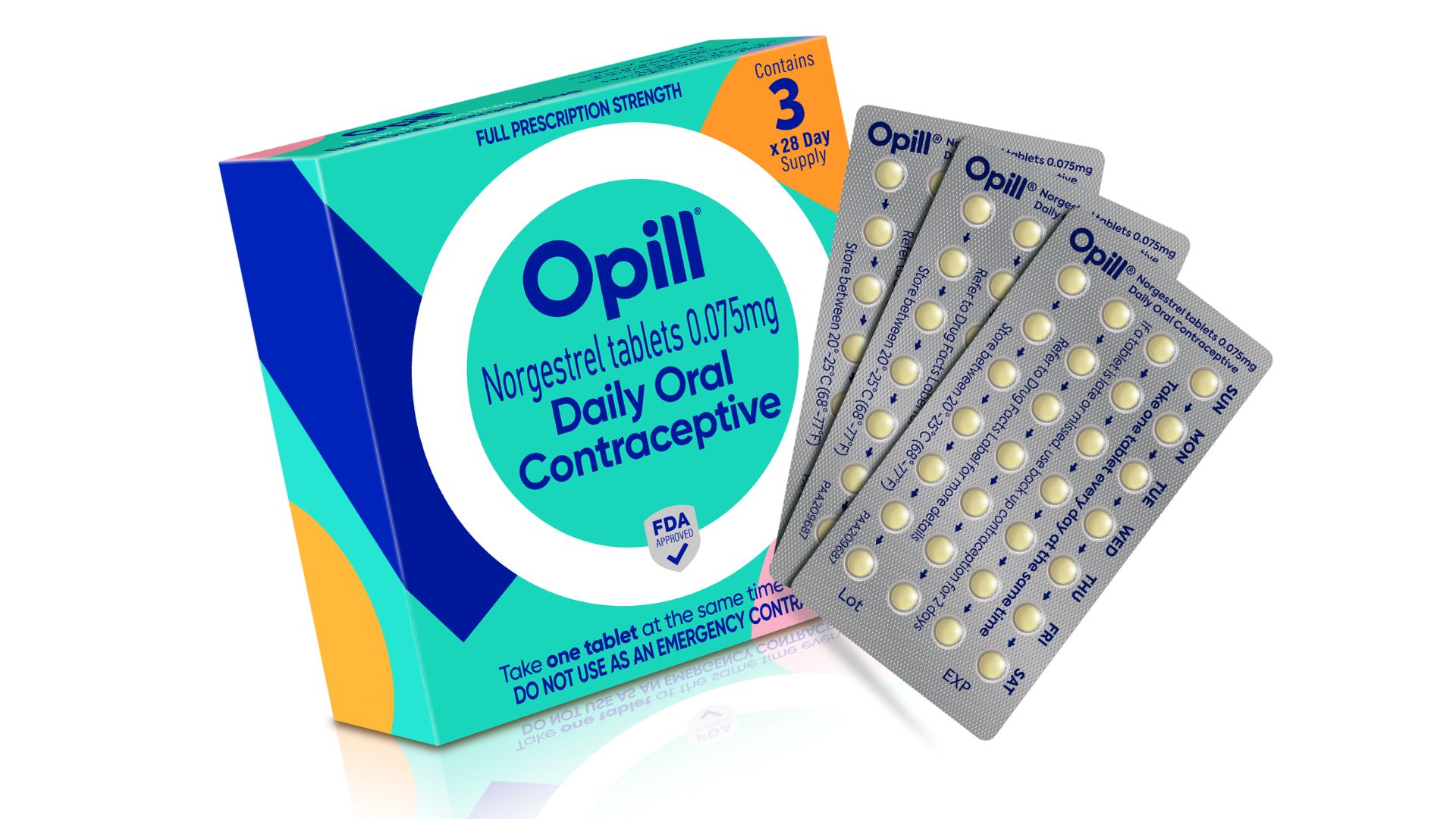
For the first time, an over-the-counter birth control pill has been approved for use in the U.S., the Food and Drug Administration (FDA) announced Thursday (July 13).
The daily oral contraceptive, called Opill, will be available without a prescription at drug stores, convenience stores and grocery stores, as well as online, according to the FDA. Perrigo, the pill's maker, anticipates that the contraceptive will be available for purchase from major retailers in the first quarter of 2024, according to an emailed statement from the company.
Perrigo has not yet disclosed the pill's price, although Frédérique Welgryn, Perrigo's global vice president for women's health, has said the drug will be made "accessible and affordable" to people of all ages and that the company will have a program to provide the pill at no cost to those who qualify, The New York Times reported.
The FDA's approval falls in line with a recommendation made in May by an independent advisory committee, in which medical experts voted 17-0 in support of Opill's approval; the FDA typically follows the advice of its advisory committees. In backing prescription-free Opill, the committee reviewed the available data and concluded that consumers would be able to take the contraceptive safely and correctly without the guidance of a health professional.
Related: Why is there still no male birth control pill?
The U.S. now joins about 100 other nations that allow birth control pills to be sold without a prescription, The Washington Post reported. U.S. experts have long pushed for such an approval, and their fight took on new impetus after Roe v. Wade was overturned last year.
"Nonprescription availability of Opill may reduce barriers to access by allowing individuals to obtain an oral contraceptive without the need to first see a health care provider," the FDA announcement reads. And it "may help reduce the number of unintended pregnancies and their potential negative impacts," which include a lower chance of early prenatal care, increased risk for preterm delivery and poor health and developmental outcomes for the affected children.
Opill is a progestin-only birth control pill, meaning it does not contain estrogen, and its active ingredient, norgestrel, was first approved for prescription use 50 years ago. Progestin-only pills, also known as minipills, are often recommended over estrogen-containing "combination" pills for people with a history of certain conditions, such as blood clots or stroke.
Opill should be taken at the same time every day. "Adherence to daily use at the same time of day is important for the effectiveness of Opill," the FDA emphasized, and taking certain medications at the same time as Opill can also reduce its effectiveness. (These potential drug interactions are detailed on the pill's label.)
If used perfectly, Opill can be up to 98% effective at preventing pregnancy. With typical, imperfect use, the pill is estimated to be about 93% effective, according to The New York Times.
The most common side effects of Opill are irregular bleeding, headaches, dizziness, nausea, increased appetite, abdominal pain, cramps and bloating. Consumers with any type of cancer should consult a doctor before taking Opill, and those with current breast cancer or a history of the disease should not use the product. The pill should not be taken during pregnancy.
Opill should not be used alongside other hormonal birth control products. However, for people who want an extra layer of protection, Opill can be used alongside condoms as a backup contraception method. Condoms should also be used to prevent sexually transmitted infections, which Opill and other birth control pills don't guard against, the FDA advises.
"When used as directed, daily oral contraception is safe and is expected to be more effective than currently available nonprescription contraceptive methods [such as condoms and spermicides] in preventing unintended pregnancy," Dr. Patrizia Cavazzoni, director of the FDA's Center for Drug Evaluation and Research, said in the announcement.







